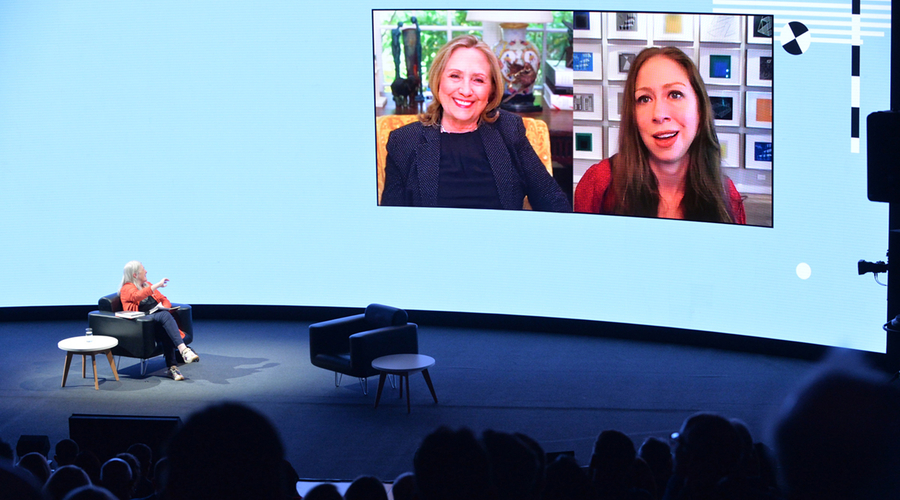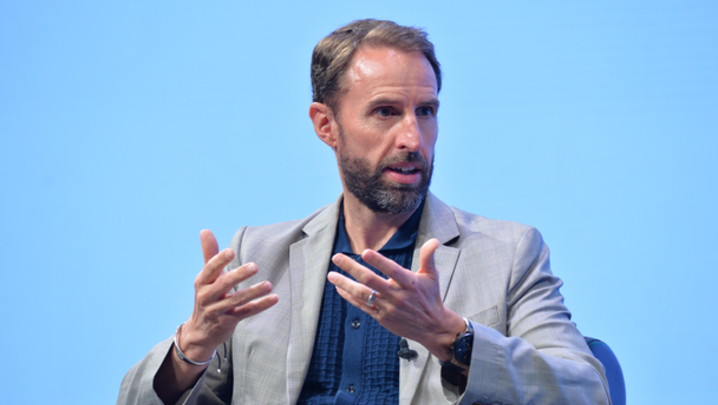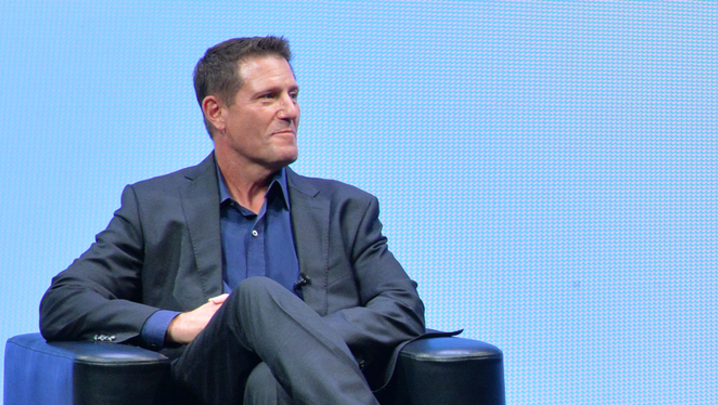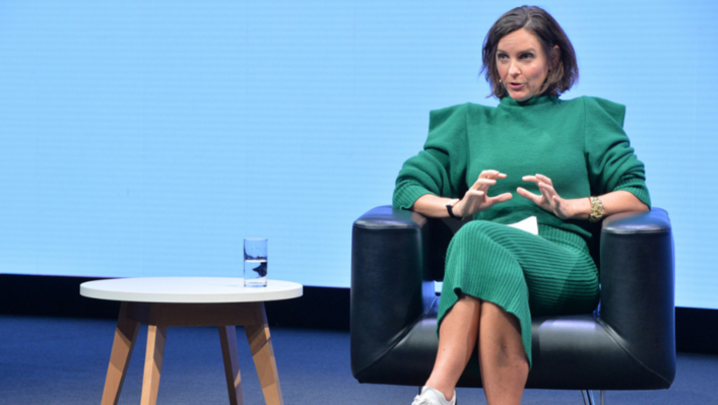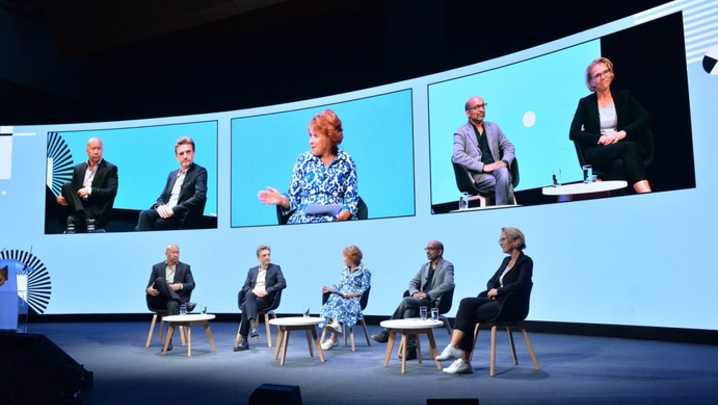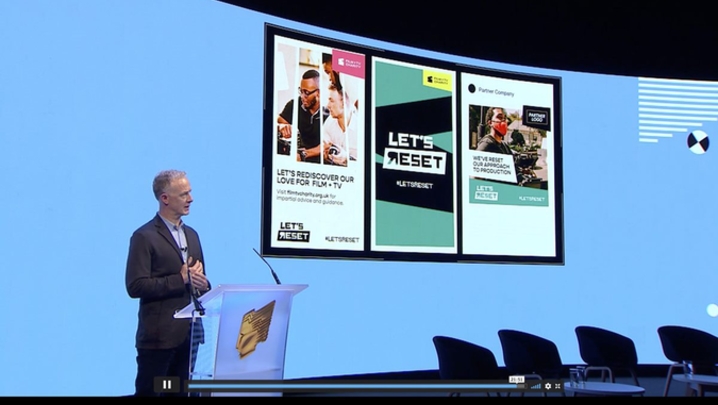The Clintons’ move into TV production aims to provide a global platform for gutsy women.
In one of the most eagerly anticipated Cambridge sessions, Hillary Rodham Clinton and her daughter, Chelsea, laid out the aims behind their new production company, Hidden Light.
The Clintons, who appeared at the Convention via video link from the US, also gave an insight into how being the subject of television for so long affects the way they make their own shows.
Their move into TV was prompted by the launch in late 2019 of The Book of Gutsy Women, in which the former Secretary of State and her daughter offered portraits of inspiring women, including activist Edith Windsor and author Chimamanda Ngozi Adichie.
Following its publication, the pair were approached by Sam Branson, son of Richard Branson, with whom they set up Hidden Light as a global production company. Their first commissioning idea was a TV version of Gutsy Women, with Hillary and Chelsea interviewing inspiring women, which was picked up by Apple TV+.
Hillary told interviewer Mary Beard that, under the terms of their contract with Apple, she could not reveal yet whom they had spoken with but “I can guarantee there’ll be some names you know and some you’ll be glad you got to know…. I think it’s going to be both surprising, entertaining, inspiring and exciting.”
She continued: “The Gutsy Women production is a combination of conversation [and] action. So, without spilling any secrets, which Apple would not be happy about, we’ve done some incredible things.”
Some of those things sounded physically challenging, as Chelsea interjected: “Sometimes, my mum [would be] like, ‘Chelsea would love to do that! And I would love to just sit right here and cheer her on’. And I was, like, ‘You should come.’ And my mum was, like, ‘I’m good.’”
Laughing, Hillary explained: “When you see the series, you’ll understand.”
Beard said: “I’m… waiting to see Chelsea waterboarding over a waterfall or something… we’ll obviously have to wait and see.”
Hillary went on to explain how they came up with the name Hidden Light: “We really do want to cast a light on those who are often overlooked or [are] forgotten characters, to try and demonstrate that there are hope and resilience and gutsiness in the darkest of times and places.
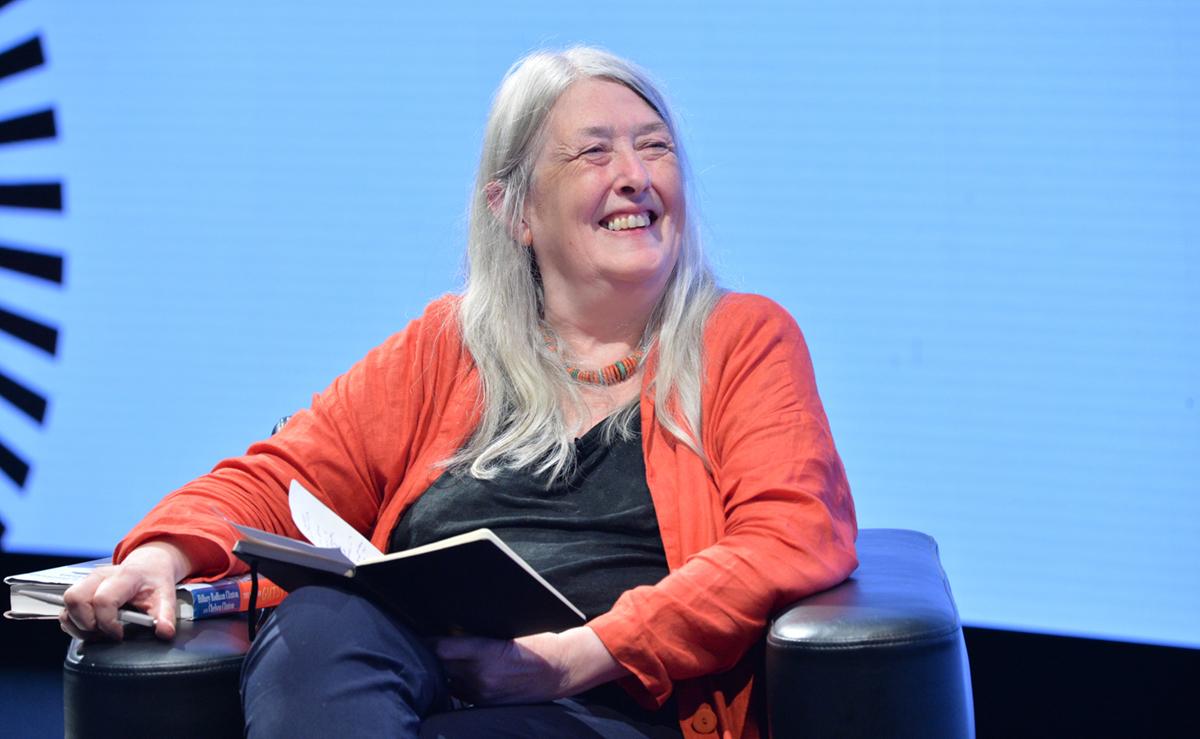
“We believe passionately in bringing these stories to light. For too long… attention has been paid primarily to the loudest voices in the room. Yet, flying under the radar, there are generations of change-makers in every place across the globe who have been making a difference – and that’s who we’re going to celebrate.”
Chelsea revealed that when she wrote her second children’s book, She Persisted, about aspirational women, she was struck by how many people said, “Don’t you think the pendulum has swung too far? You really think we need more stories about girls? Do you think boys are going to read those stories?”
“I was so aghast. I said… most books are centred on boys and written by men, so there hasn’t been an overcorrection.” That led her and her mother to think, “We’ve still got a lot of work to do” – which they thought could be best done “through storytelling”.
Based in London, New York and Los Angeles and led by CEO Johnny Webb and Executive Chair Roma Khanna, Hidden Light has already optioned other books. These include, Hillary revealed, the Maisie Dobbs series of novels by Jacqueline Winspear, which she and Chelsea have enjoyed reading over the years.
Beard asked what Hidden Light would add to the TV landscape and whether it could be accused by some of being a bit worthy? Hillary said that while some of the stories would be worthy, “some are fun, some are entertaining, some are informative”.
She added that the company had just launched its first series, a four-parter fronted by YouTuber Patricia Bright called If I Could Tell You Just One Thing, for YouTube Originals: “It’s fun, it’s glossy; it’s also poignant and insightful.”
The stories include those of Baroness Floella Benjamin standing up to racism and the comic Katherine Ryan opening up on being a single mum.
Hillary also gave the example of Hidden Light’s adaptation of Gayle Tzemach Lemmon’s The Daughters of Kobani, which they are in the early stages of producing: “This is the unforgettable story of an all-female militia who took on Isis in northern Syria and won. We’re working closely with the Kurdish creative community, so our film brings the story to light in the most authentic way possible.” She said it was a “compelling, incredibly engrossing story”, which she hoped would spark interest from audiences and make them become more curious. The pair also said they wanted to make content that families could watch together.
Chelsea explained: “I do think we’ve often not had that enough as a goal in TV and in movies…. Things are often just for very mature audiences or just for kids and we want to break down those silos…. We want to have common conversations about common content and experiences; hopefully, Hidden Light can facilitate that.”
Beard reflected that “it used to be the case” that many actors went into politics but now the “trend is the other way…. Do you think TV is going to be a good way for getting your message across… is it going to be a better platform?”
Hillary described TV as “an inevitable and invaluable platform in today’s world”, adding that a lot of content is “often repetitive and not particularly creative or informative even”.
Beard asked how their own experiences as the subject of television coloured how they make their own shows: “People have been peering at you, and at you, too, Chelsea, in ways you didn’t particularly want. Does it make you reflect a bit back on those experiences of being the camera fodder or have you left that behind?”
“I never want anyone to feel awkward or to feel as if there’s any a hidden agenda,” said Chelsea. “Despite us being called Hidden Light, we’re very candid, transparent, inclusive [about] what we hope to do… and I think that’s partly because I haven’t always felt that way when I’ve been the subject.”
Hillary agreed, saying about Gutsy Women: “I think all of my experience has probably made me a more effective person in front of the camera for this project.”
She expanded: “I’ve had a lot of, shall we say, difficult moments with the press over my very long public political career. If I had known more then [of] what I know now, I might, frankly, have been more effective in dealing with some of the moments I found myself in. It’s never fun to have a ‘gotcha’ moment or have someone misrepresent you or make up something about you, which I’ve had a lot of experience with.
“I think I’d have been a little more understanding and even willing to figure out a different approach, rather than throwing up my hands and saying, ‘What do you expect? That’s just the way they are.’
“I think I might have been more successful in dealing with whatever came my way.”
Session Seven: ‘Global leaders keynote: Hillary Rodham Clinton and Chelsea Clinton’. The Clintons were in conversation with Mary Beard, professor of classics, Cambridge University. The producers were Helen Scott, Siobhan Sinnerton and Johnny Webb. Report by Tara Conlan.

